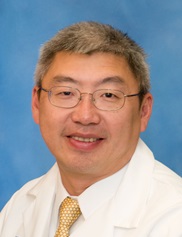Grants We Funded
Grant applicants for the 2023 cycle requested a total of nearly $4 million dollars. The PSF Study Section Subcommittees of Basic & Translational Research and Clinical Research evaluated nearly 140 grant applications on the following topics:
The PSF awarded research grants totaling over $1 million dollars to support nearly 30 plastic surgery research proposals.
ASPS/PSF leadership is committed to continuing to provide high levels of investigator-initiated research support to ensure that plastic surgeons have the needed research resources to be pioneers and innovators in advancing the practice of medicine.
Research Abstracts
Search The PSF database to have easy access to full-text grant abstracts from past PSF-funded research projects 2003 to present. All abstracts are the work of the Principal Investigators and were retrieved from their PSF grant applications. Several different filters may be applied to locate abstracts specific to a particular focus area or PSF funding mechanism.
Silicone Joint Arthroplasty for Rheumatoid Arthritis: A Clinical Trial
Kevin Chung MD, MS
2009
University of Michigan
Scientific Essay Contest
Background: Metacarpophalangeal (MCP) joint deformities caused by rheumatoid arthritis can be treated using silicone metacarpophalangeal joint arthroplasty (SMPA). There is no consensus whether this surgical procedure is effective. The purpose of the study was to prospectively compare outcomes for a surgical and a non-surgical cohort of rheumatoid arthritis patients.
Methods: The prospective cohort trial was conducted from January 2004 to May 2008 at 3 referral centers in the US and England. Over a 3 year period, 70 surgical and 93 nonsurgical patients were recruited. All patients had severe ulnar drift and/or extensor lag of the fingers at the MCP joints. The patients all had one year follow-up evaluations. Patients could elect to undergo SMPA and medical therapy or medical therapy alone. Outcomes included the Michigan Hand Outcomes Questionnaire (MHQ), Arthritis Impact Measurement Scales (AIMS2), grip/pinch strength, Jebson-Taylor test and ulnar deviation and extensor lag measurements at the MCP joints.
Results: There was no difference in the mean age for the surgical group (60) when compared to the non-surgical group (62). There was also no significant difference in race, education, and income between the two groups. At one year follow-up time, the mean overall MHQ score showed significant improvement in the surgical group, but no change in the non-surgical group, despite worse MHQ function at baseline in the surgical group. Ulnar deviation and extensor lag improved significantly in the surgical group, but the mean AIMS2 scores and grip/pinch strength showed no significant improvement.
Discussion: This clinical trial demonstrated marked and significant improvement for RA patients with poor baseline functioning treated with SMPA. The non-surgical group had better MHQ scores at baseline and their function did not deteriorate during the one year follow-up interval.
 First Place Clinical Research Senior Category -
Dr Kevin C. Chung is a hand and upper extremity surgeon who is Professor of Surgery and an Assistant Dean for Faculty Affairs at the University of Michigan Medical School. He is a Director for the American Board of Plastic Surgery and serves as a board member for ASPS/PSEF. He is the Deputy Editor for the Journal of Hand Surgery and is the Section Editor on Outcomes Research for Plastic and Reconstructive Surgery.
First Place Clinical Research Senior Category -
Dr Kevin C. Chung is a hand and upper extremity surgeon who is Professor of Surgery and an Assistant Dean for Faculty Affairs at the University of Michigan Medical School. He is a Director for the American Board of Plastic Surgery and serves as a board member for ASPS/PSEF. He is the Deputy Editor for the Journal of Hand Surgery and is the Section Editor on Outcomes Research for Plastic and Reconstructive Surgery.